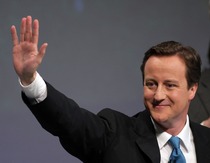 Cameron’s proposal for Swedish style school reform may not win him the next election, but if he implements it properly it will win him a second term. His speech today does what I have long hoped for: put a Swedish-style supply side revolution at the heart of Tory policy.
Cameron’s proposal for Swedish style school reform may not win him the next election, but if he implements it properly it will win him a second term. His speech today does what I have long hoped for: put a Swedish-style supply side revolution at the heart of Tory policy.
The new schools cannot be his only proposal, hence plans for streaming by ability, reading age etc. While this will soak up today’s media attention it will be a small part of the Tory education reform now in prospect.
It is hard for Britain to imagine a system where pupils choose schools and not vice versa, which is why Cameron will have problems getting this message across. Even Sweden had no idea how effective the 1993 schools proposal would be. Ministers offered a fixed amount per pupil to new schools that passed basic tests, and that was it. Providers came out of the woodwork: from churches, villages and for-profit companies. Within four years, the situation had been transformed and hundreds of new schools had opened. A tipping point was reached, where the other schools had to shape up or lose pupils. And if this social entrepreneurialism could happen in the most socialistic country in the free word, does anyone doubt it can happen in Britain?
The Tories should start to explain this now. Take a church trying to set up a school. If they knew the Tories would offer £5,500 per kid, their wish would be granted. Everyone in that parish would have a reason to hope for a Tory victory at the next election. Same for parents on sink estates, depressed at having no option but the local sink school. A Tory government would allow small, boutique schools to open near them (as poor kids would be worth more to teach). This is what happens in Sweden, where parents in council estates get leafleted when their kid approaches secondary school age, by schools competing on quality of education.
Once I heard the head of a Swedish school group asked about waiting lists. No such thing, he said. If there is a surplus of demand, they open a new school. And Sweden, by the way, spends no more on education than we do.
Cameron finally has a good catchphrase: moving to a “post bureaucratic age”. Ie, he is placing his faith not on new instructions given to local authority education barons but on the resourcefulness, courage and character of the British public. When Thatcher did this over the economy, it paid off in spades. If Cameron does this properly with public services then he may deliver the revolution Blair dreamed about.







Comments